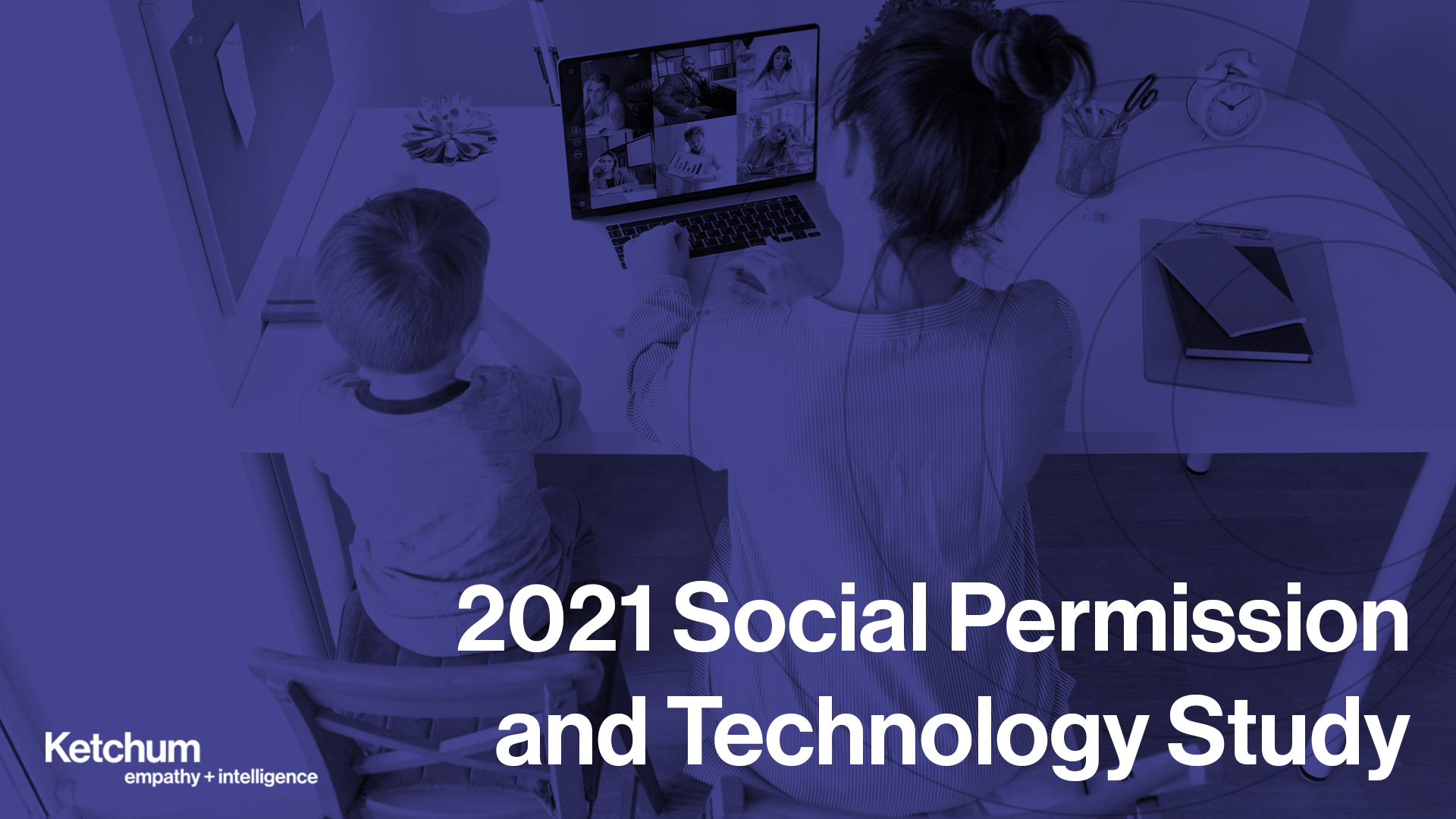As the COVID-19 crisis emerged, worsened and endured, technology became our saving grace.
Technology allowed us to stay connected to friends and family, and to access essential needs like education, healthcare – even the weekly grocery shopping. And without digital technologies enabling us to live and work virtually, we undoubtedly would have plunged into a deep global economic depression or many more people would have become sick.

And yet, our love/hate relationship with technology solutions – or more specifically, the companies and industry that powers them – is growing increasingly complex. Our biggest takeaway from Ketchum’s third Social Permission and Technology Study, released today, is that both B2B and consumer respondents feel similarly: They can’t live without advanced technologies, but they’re increasingly wary of technologies and the companies who sell them, too.
A review of the survey findings reveals a deep reputational chasm between appreciating tech products and being apprehensive about the companies that create them. For instance, 72% of B2B leaders and 74% of consumers say they like having technology in their life but distrust big tech companies.
Moreover, 48% of Techruptors – a group Ketchum identifies as being leading indicators of tech trends and perceptions – and 46% of B2B leaders say they feel worse about technology since the pandemic began, numbers even higher than those of the general public (42%).
Given these alarming findings, technology company communicators must strive to answer two questions.
The first is … why does such a chasm exist?
Based on what we’re hearing from our B2B and tech clients, as well as observations culled from this year’s research and Ketchum’s two previous Social Permission and Technology studies, we have some thoughts about what is causing these issues.
- Reason #1 – Users have no choice. Technology has become so ubiquitous – for work, school, manufacturing, everyday communications and more – that both consumer and B2B audiences have no choice but to embrace it. Opting in is no longer a maybe; tech is mandatory. This loss of control means tech has taken over our lives, often leading to resentment and frustration.
- Reason #2 – Reputation building has taken a backseat to product promotion. For years, tech firms have focused on telling product stories – innovations and market launches – to drive market share. And in many ways it’s worked. But as the industry has matured, and stakeholders have more questions and concerns about privacy, security and other issues, too few companies have woven reputation management into their comms strategies. That mindset must shift, as this survey stat helps to illustrate: Nearly nine in 10 enterprise IT B2B buyers say a company’s commitment to ethical uses of technology makes them more likely to purchase their products.
- Reason #3 – Long-term impact is (mostly) untested. Yes, new technologies undergo rigorous testing for efficiencies, effectiveness and basic safety protocols. But how much do we really know about their long-term impact on human physical and mental health? Tech users already have strong opinions about it. According to the survey, 60% of Techruptors, 57% of B2B leaders and 49% of Americans overall worry about the use of technology impacting their mental state. Our data also shows that gamers – a group that embraces technology willingly – are the most concerned, with 64% saying they are worried about the use of technology impacting their mental state.
The second question is … how can communicators bridge this widening reputational chasm?
The answer is simple, yet complex in terms of implementation: Be aggressively proactive, reputationally. All tech and B2B brands need to take stock of and evaluate their corporate reputation stories (many of which, historically, are driven by legal and regulatory issues rather than user concerns). If your organization isn’t emphasizing issues that can affect corporate reputation, you can expect more reputational challenges to emerge.
The Ketchum survey is a useful tool in helping assess and analyze your strategic approach to reputation, as it covers other important issues, such as gender-based views on technology, as well as the social, political and economic ramifications of our dependence on technology.
We encourage you to download the full study and press release. And reach out if we can help you bridge your company’s reputational gaps.



